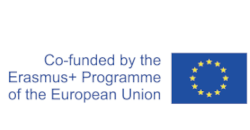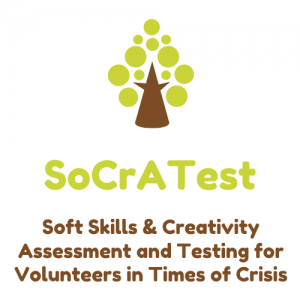In 2020, the Covid-19 pandemic has led unprecedented challenges not only in healthcare and economy, but also on the level of human cognitive, behavioural and operational skills.
This “new normality” can be described in the acronym VUCA: velocity, uncertainty, complexity and ambiguity. In this world of continuous, unpredictable and widespread changes, new ways of thinking and new individual and organizational skills are needed in order to cope with these challenges.
The Corona crisis has also led, especially in times of lock-down and in areas that are most affected by the pandemic, to developments in the field of volunteer work which for years seemed unthinkable: Voluntary work and the associated assumption of responsibility in civil society have gained a completely new appreciation. People not only volunteer for the well-being of their neighbours, or offer interactions with people who cannot leave the house or take on shopping services. They also take on activities that have nothing to do with their actual job where support is urgently needed: in care, in agriculture, or in the mobility economy, or in the creative sector which is economically and financially affected by the Covid-19 pandemic.
Regardless how different in terms of professional background the volunteers are, they have one thing in common: Volunteering is a way to gain new soft skills like team spirit, cognitive empathy, communication skills, intercultural competence, stress management, discipline, and self-confidence. Volunteering is an effective learning environment, especially for those people who had to realize that their professional activity is by no means systemically relevant in terms of crisis management. Strictly speaking, volunteering is a great opportunity, namely that of acquiring and validating soft skills and then being able to use them in subsequent professional environments as additional qualification.
However, how can a volunteer recognize and validate those new skills? How can an employer be made aware that creative and cultural skills can be an added value in stress situations or for the creation of teams, or intercultural tasks? Consequentially, it is absolutely fundamental to properly validate those “soft skills”, i.e. new personal competences.
Although the wording suggests otherwise, “soft skills” can make the difference in working life and can equip young people and adults to come up with creative and innovative solutions to face unprecedented risks, societal challenges as well as to unveil opportunities that can are needed in a critical context.
SOCRATEST targets EU countries who suffer most from the pandemic, among them Italy, Portugal, Austria and Greece. The transnational collaboration will benefit from the various experiences and competences of the partnership which consists of i social partners, institutions working with volunteers, organisations working with people with disabilities,
associations from the creative and cultural sectors, adult education institutes, social research centres and ICT experts for the development of open educational resources (OERs).


